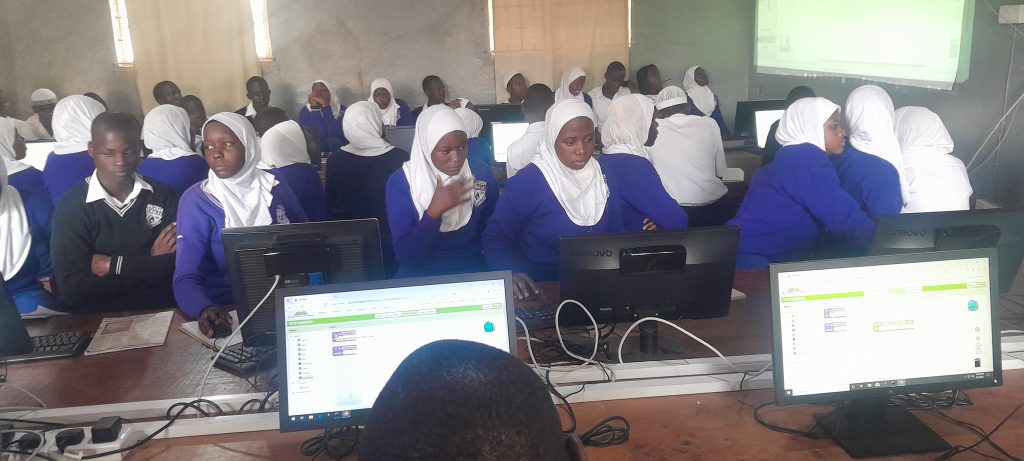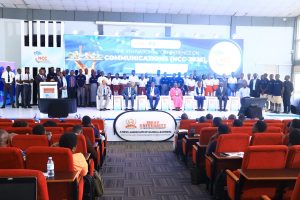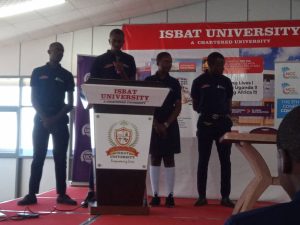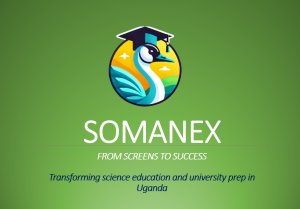Empowering the Future: Kibibi Secondary School Launches ICT Club with Vision and Innovation

On Thursday, 5th June 2025, KAWA Uganda, in partnership with the Uganda Communications Commission (UCC), proudly launched an ICT Club at Kibibi Secondary School, located in Kibibi Parish, Kibibi Sub-county, Butambala District. This initiative marks a significant milestone in the school’s journey towards digital transformation, equipping students with relevant technological skills for the 21st century.

The training, held at the Kibibi SS Computer Laboratory, was facilitated by Mr. Wamboka Isaac Ezekiel, a trainer from KAWA Uganda. The program focused on hands-on digital literacy, specifically mobile app development using MIT App Inventor and programming with Visual Studio Code. A total of 34 students and 2 teachers actively participated in the session.

One of the highlights of the day was the students’ collaborative proposal to develop an innovative, school-specific mobile application modeled after Amazon. This app will enable students to order food from the school canteen and receive it in their classrooms, generating revenue through delivery logistics. This practical project strongly aligns with Sustainable Development Goal 9: Industry, Innovation, and Infrastructure, by promoting digital solutions and entrepreneurial thinking.
What made this launch particularly outstanding is that Kibibi SS had already initiated an ICT Club on its own, before this official event. The school had made commendable progress in teaching students computer maintenance, a skill that remains largely absent in many secondary schools. This demonstrates the school’s deep commitment to ICT integration.
The event received strong support from the school leadership. Mr. Bbosa Musharaf, the Club Patron, praised the initiative, saying:
“This ICT Club is not just a club; it is a gateway to new opportunities for our learners. With continued mentorship and tools like KAWA Connect, our students will be able to innovate, solve real-life problems, and inspire change in their communities.”
Hajjat Namutawe Maimunah, the school’s Headteacher, also endorsed the program, committing the school’s support in sustaining the club and expanding its resources. Their leadership ensured smooth coordination and participation during the launch.
Despite the enthusiasm, the training faced one notable challenge: power fluctuations during sessions, which occasionally disrupted learning. It is therefore recommended that the school explores installing solar power systems or securing a backup generator to provide consistent electricity, especially for technology-intensive activities.
The students expressed overwhelming appreciation for the training. As one excited student, Shamirah Nalunga, put it:
“We never imagined creating our own apps was possible. Now I feel like I can build anything. Thank you KAWA and UCC for believing in us.”
Another student, Ahmed Katende, added:
“This has opened my eyes to new ideas. I want to create something that can help my family and school.”
Their testimonials reflect a growing passion and awareness of how digital tools can transform personal futures and entire communities.
In conclusion, the launch of the ICT Club at Kibibi Secondary School is a beacon of progress for Butambala District. By embracing practical digital education, fostering student-led innovation, and prioritizing sustainability, the school is paving the way for a smarter, more connected generation. With continued support from UCC and KAWA Uganda, this club will not only thrive but become a model for digital empowerment across rural Uganda.








